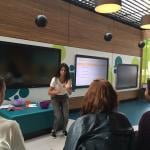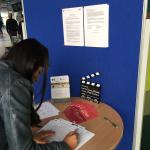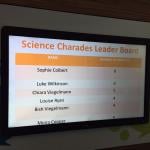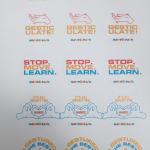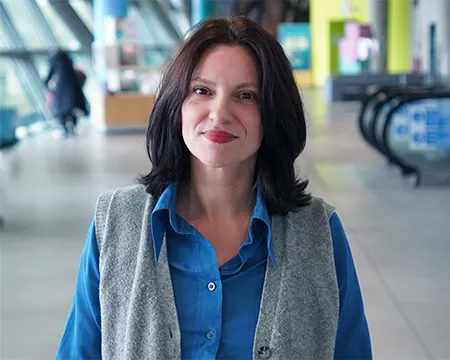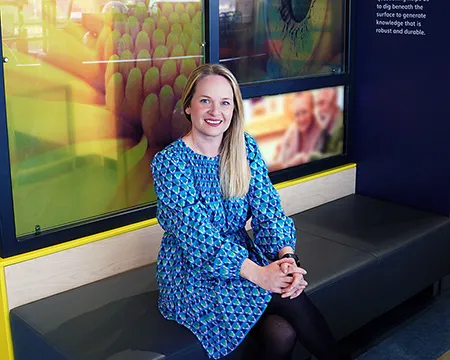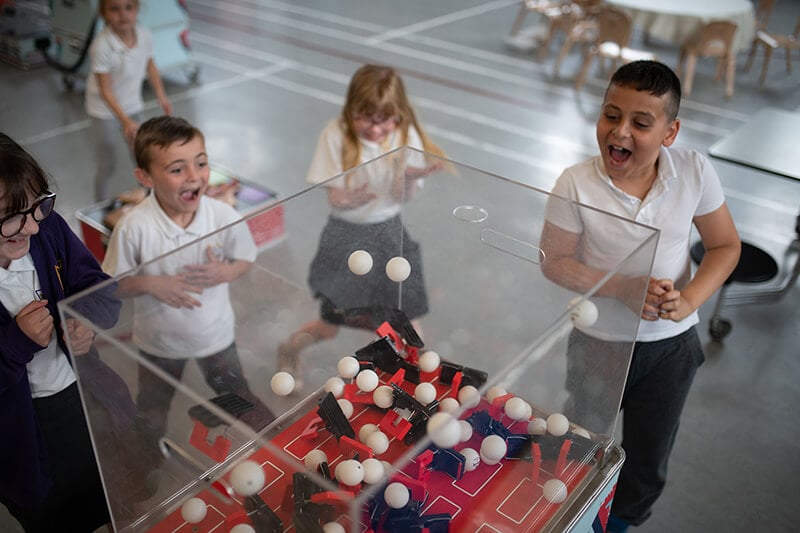Science Charades: communicating science through gesture at Glasgow Science Centre

Researchers from the Centre for Research in Digital Education have been working closely with one of their chief collaborators, Glasgow Science Centre, as part of the Move2Learn project. Through this collaboration, Zayba Ghazali-Mohammed was invited to hold a dissemination activity at GSC’s quarterly ‘Science Lates’ events. If you’ve never been to these events, they are adult-only events held after hours at GSC, where you can purchase drinks, explore the science centre and take part in various science-themed activities/research/talks by invited guests.
Rather conveniently, the theme for this month’s event was MOVE and Susan Meikleham, Senior Science Learning Coordinator at GSC, Andrew Manches, and Zayba held the Science Centre’s very first “Science Charades” competition. This worked like your usual family favourite game, with the exception that all words were science concepts that participants had only 2 minutes to communicate to their audience. At the end of the two minutes, those with the most words communicated went on a leader board and were in with a chance to win the coveted Move2Learn Science Charades trophy – 3D printed and laser cut by GSC themselves.
Sounds easy – but how would you communicate words like aerodynamics, torque, and galaxy through gesture alone? At the end of the night an announcement was made through the tannoy system at the science centre, and our winner collected the trophy for communicating a total of 8 science ideas in 2 minutes. All runners up got to take home fantastic Move2Learn stickers which were once again designed and printed by the designers at GSC.
It was all fun and games but there was also a serious side to our activity; we had a fantastic opportunity to communicate our research to a broad audience and invited them to participate in our ‘diary room’ where they were video-recorded taking part in a short activity that encouraged them to gesture. This is data that we will use as part of the Move2Learn project to understand how adults think about and communicate science ideas through both language and gesture, and consequently use this to help inform our future child studies.
Dr Zayba Ghazali-Mohammed is UK Research Associate for the Move2Learn project, at the University of Edinburgh
FIND OUT MORE
The Move2Learn project is an international research collaboration to advance understanding of the role of embodied interaction in young children’s learning about science in informal settings.



